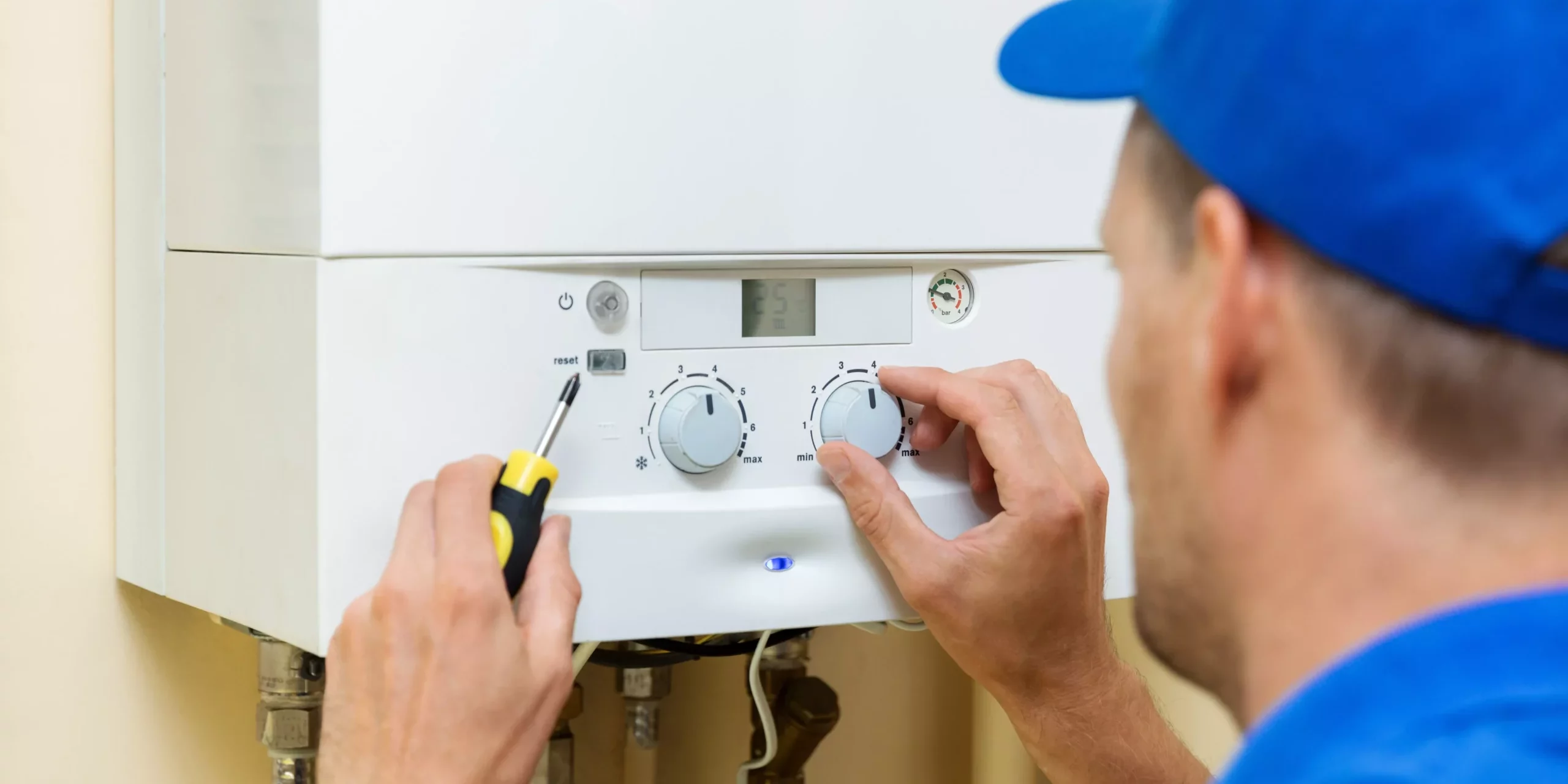Same boiler type in the same position: 6 – 10 hours
When you’re upgrading the same type of boiler from an old inefficient one to a new & more energy-efficient model this is what’s known as a “straight swap” in the industry. You’ll often get this installation when your central heating is working well but your boiler is either broken or too old and needs to be upgraded.
They are one of the quickest boiler installations we can offer. This can be done by one engineer in less than a day, taking 6 to 10 hours on average to complete.
Move the location of your boiler: 1–2 days
If you’re happy with your current boiler but think it’s in a location that’s not so great, you can always choose to move the boiler to a more suitable area.
This isn’t an easy job and requires new pipework to be installed, electric power & thermostat cables to be connected and a small amount of structural work may be necessary to create space for the flue and overflow.
This will usually be completed by one engineer within 2 days.
Installing a brand new combi boiler: 1–2 days
If you’re moving into a brand new home without heating & hot water and want a brand new combi boiler installed, it’s likely going to take the same amount of time as moving the location of a boiler – as the work involved is very similar. It should take an engineer 2 days to complete.
If you’re moving to a new home that doesn’t have any central heating, then that will increase the workload significantly. It could take anywhere between 1-2 weeks for a gas safe engineer, as it involves lifting carpets & flooring, laying pipework and installing radiators.
Changing to a combi boiler: 2-3 days
If you’ve been thinking about converting your current boiler to a combi, this will likely take an engineer 2 -3 days. This is mostly due to dismantling & safely removing old boiler parts and components, such as a cold water storage tank or heating cylinder.
The quickest part of the conversion is removing the old boiler and swapping it out for a new energy-efficient combi.
The above time frame is only if you want the boiler in the same place, if you also want to change the location that will likely take 3 – 4 days instead.
Changing a boiler with different fuel types: 2 – 3 days
If you’re installing a new boiler but also want to change your current fuel type to gas, oil or electric, it will likely take 2-3 days due to the amount of extra plumbing and electrical work involved.
What if you need a central heating power flush?
A power flush is a process that involves cleaning the central heating system of a property using a specialized machine. During the power flush, a cleansing chemical is pumped through the central heating system to remove any debris, sludge, rust or other sediment that may have accumulated over time.
The machine uses high-pressure water to flush out the system, which can help improve its efficiency, reduce heating costs, and extend the lifespan of the heating system.
The power flush process typically involves the following steps:
- The heating system is isolated and drained of water.
- The power flush machine is connected to the system and the cleaning chemical is added to the water.
- The machine is turned on, and the cleaning chemical is circulated through the system at high velocity to break down any contaminants.
- The machine then flushes out the system with fresh water, removing any debris and contaminants.
- The system is refilled with water and inhibitor, which helps prevent future build-up of contaminants.
Power flushing can be a highly effective way to restore the performance of a central heating system that has become inefficient due to the build-up of contaminants. It is recommended that a power flush be carried out every 5 to 10 years to keep your heating system in good working order.

